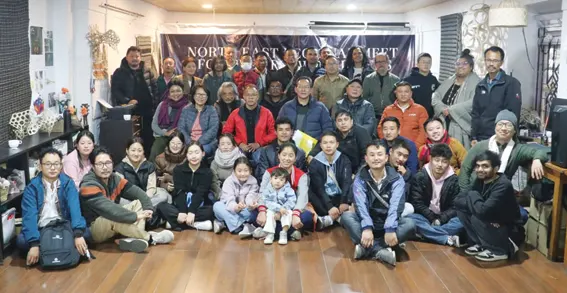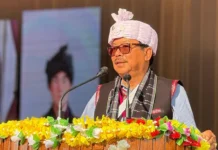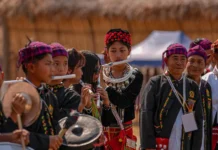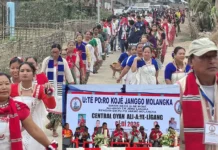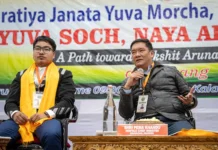Staff Reporter
GANGTOK, 3 Dec: Organisations from across Northeast India who gathered in Gangtok, Sikkim, for the ‘Northeast India meet on free-flowing rivers’ have come up with the Teesta Declaration to safeguard the rivers of the region from large hydroelectric dams.
The two-day event, which started on 29 November, was organised by the Affected Citizens of Teesta, the Centre for Research and Advocacy, Manipur, and the Borok Peoples Human Rights Organisation. The participants addressed critical concerns regarding the region’s rivers and their ecosystems.
The key resolutions in the declaration include preservation of river flow, as the participants unanimously resolved to ensure unimpeded flow of all the rivers in Sikkim and across Northeast India, recognising the inherent right of rivers to flow freely.
Acknowledging the cultural and survival ties of the indigenous peoples with their rivers, forests, and land, the meeting emphasised the need for self-determined development, and called for an immediate halt to the construction of large dams in Northeast India, citing concerns over fragile biodiversity, seismic activity, climate change, and various social and environmental impacts.
The assembly demanded scrapping and decommissioning of the 1,200 MW Teesta-III dam in Sikkim, citing the disastrous consequences witnessed on 4 October, which had led to loss of lives and extensive damage to properties.
A call was made to international financial institutions, including the World Bank and the Asian Development Bank, to cease financing large dams in Northeast India, emphasising the importance of sustainable and just energy solutions.
The participants also urged the government to ensure the rightful participation of all communities in decision-making processes that affect their rivers, land, forests, and future.
They expressed concern over the adverse effects of large dams on the environment, ecosystems, and climate, and condemned the classification of such projects as green, clean, and sustainable solutions.
The assembly expressed solidarity with the victims of the Teesta-III dam disaster, and highlighted the lack of accountability and preparedness on the part of the dam project authorities and the government.
Concerns were raised about the impact of climate change on the Himalayan region leading to glacial lake outbursts, landslides, and increased disaster potential.
The assembly condemned the pursuit of mega infrastructure projects, such as roads and high-voltage transmission lines, associated with large dams, causing deforestation and violence against the environment and people.
The participants also voiced concern over multinational companies benefiting from dam construction without being held accountable for their impact on the environment and local communities.
They also expressed concern over the dilution of environmental laws, such as the EIA Notification, 2020, and the FCA Amendment Rules, 2023, facilitating the pursuit of unjust energy solutions like large dams.
The Arunachal delegation consisted of Dibang Resistance’s Ebo Mili, Siang Indigenous Farmer’s Forum general secretary Dunggo Libang, and Lobsang Gyatso.
The event was organised by the ACT’s Gyatso Lepcha and co-organised by Manipur-based Centre for Research and Advocacy secretary Jiten Yumnam and Tripura-based Burok People’s Human Rights Organisation secretary-general Anthony Debbarma.

